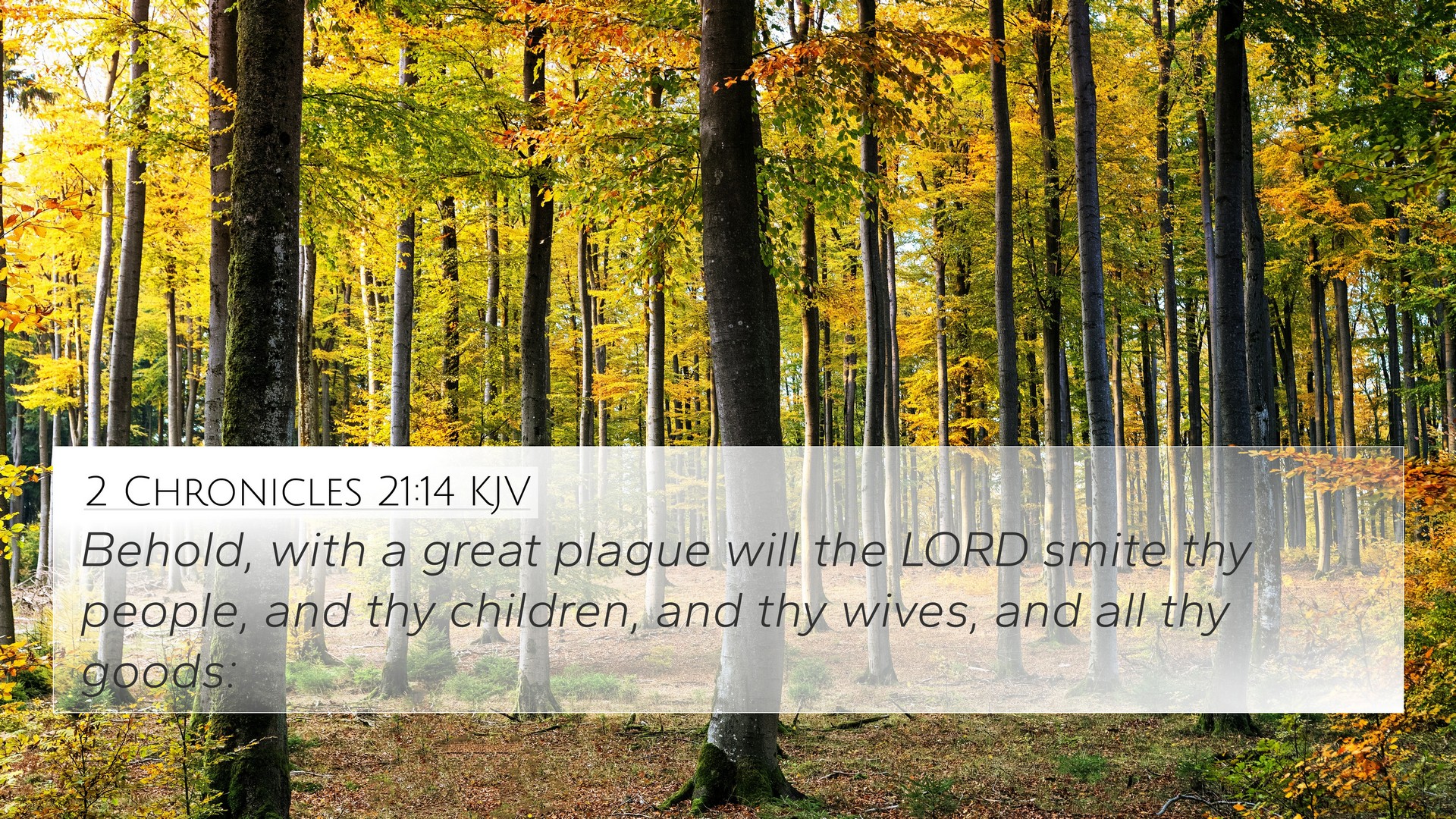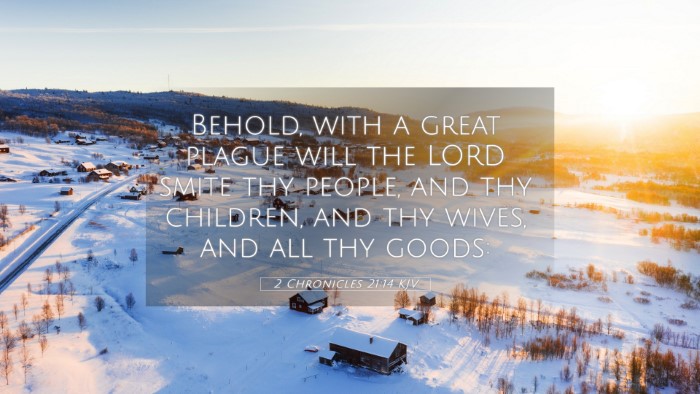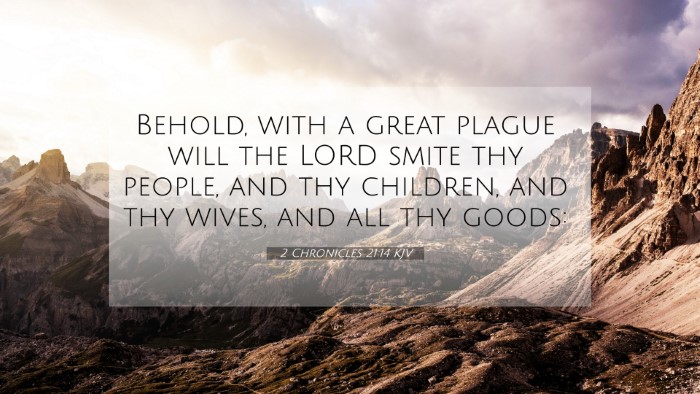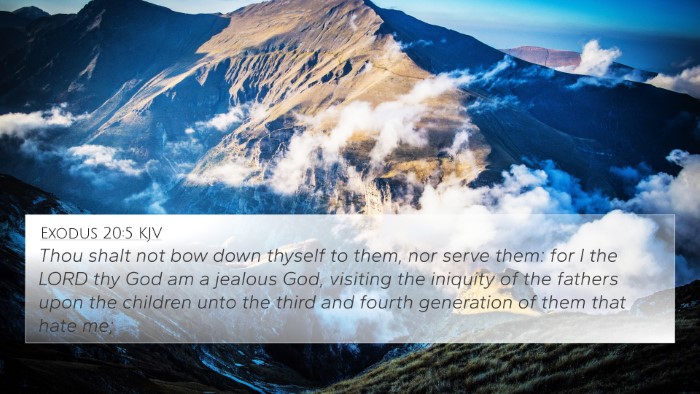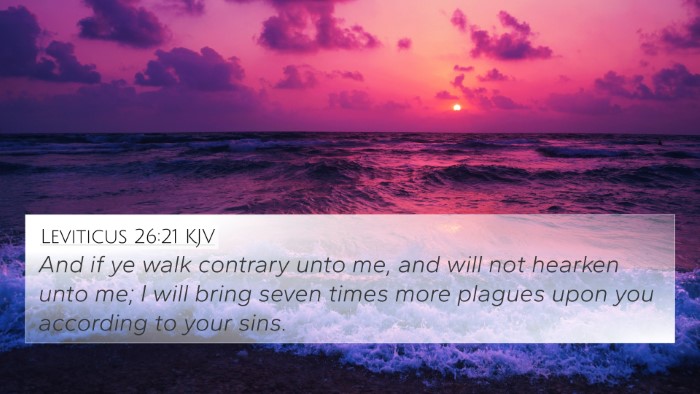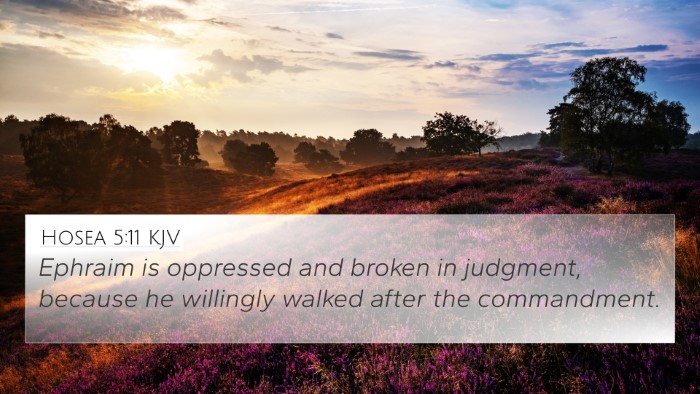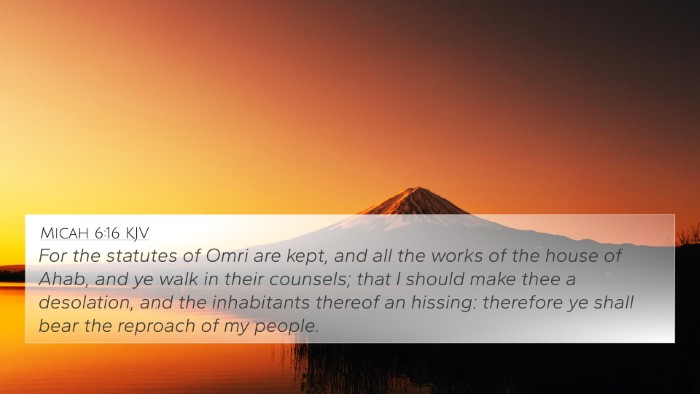Understanding 2 Chronicles 21:14
2 Chronicles 21:14: “Behold, with a great plague will the Lord smite thy people, and thy children, and thy wives, and all thy goods.”
This verse is part of a solemn proclamation made to King Jehoram of Judah, emphasizing the judgment that would befall him and his household due to the sins he committed, particularly the worship of idols and the wickedness that characterized his reign.
Summary of Meaning
This verse highlights the dire consequences of turning away from God and engaging in idolatry. It illustrates a serious theme in scripture—that disobedience and rebellion against God's law result in judgment, often affecting not just the individual but their family and community as well.
Commentary Insights
-
Matthew Henry:
Henry emphasizes that this verse serves as a warning of God's displeasure against Jehoram's actions. The prophet's message conveys the certainty of divine judgment, calling attention to the fact that both personal and communal sins invoke severe consequences.
-
Albert Barnes:
Barnes notes the specific nature of the recompense described here. Jehoram's sins are not merely personal failures; they invite calamity upon his entire house. Barnes highlights the biblical principle found in Exodus 20:5 about the sins of the fathers being visited upon the children, which underscores the seriousness of Jehoram's idolatry.
-
Adam Clarke:
Clarke discusses the nature of the "great plague" mentioned in the verse, relating it to the broader theological themes of judgment in the Old Testament. He connects Jehoram’s fate with other biblical instances where leaders' sins brought about communal suffering, prompting reflection on the impact of leadership on a nation.
Thematic Connections
The themes of divine judgment, family consequences, and the impact of leadership resonate throughout the scriptures. The serious tone of 2 Chronicles 21:14 echoes in the following cross-referenced verses:
- Exodus 20:5 - “You shall not bow down to them or serve them, for I the Lord your God am a jealous God, visiting the iniquity of the fathers on the children to the third and the fourth generation of those who hate me.”
- 1 Kings 21:21 - “Behold, I will bring disaster upon you and will utterly burn you up...” - Reflects God's judgment on sinners.
- 2 Kings 9:20 - “... there is a treasonous plot, it is Jehu...” - The consequences of evil reign can lead to violent ends.
- Jeremiah 32:30 - “For the children of Israel and the children of Judah have only done evil before me from their youth...” - The generational impact of sin.
- Romans 1:18 - “For the wrath of God is revealed from heaven against all ungodliness...” - New Testament reflection on divine judgment.
- Galatians 6:7 - “Do not be deceived: God is not mocked, for whatever one sows, that will he also reap.” - The principle of consequences for actions.
- Psalm 89:30-32 - “If his children forsake my law...” - God's commitment to discipline and correction.
Connections Between Bible Verses
The verse serves as a reminder of the inter-Biblical dialogue on the consequences of sin, particularly related to leadership. Understanding the full context allows for a comparative Bible verse analysis that strengthens theological grasp. Unearthing these biblical connections illuminates how different scriptural voices converge on shared themes.
The Importance of Cross-Referencing
Utilizing tools for Bible cross-referencing helps readers draw parallels between scriptures, enhancing understanding. For instance, identifying the consequences of sin throughout both the Old and New Testaments can inform a believer’s comprehension of God’s justice and mercy.
How to Use Bible Cross-References
When studying passages like 2 Chronicles 21:14, one might consider using a Bible concordance or reference guide. This allows for an exploration of similar themes and the establishment of a comprehensive study of the nature of divine judgment across the Bible.
Conclusion
In summary, 2 Chronicles 21:14 serves as a severe reminder of the repercussions of disobedience against God. Through a thorough understanding of the insights provided by public domain commentaries and the connections to other Bible verses, individuals can appreciate the depth of God's word and the need for faithfulness in their spiritual journey.
